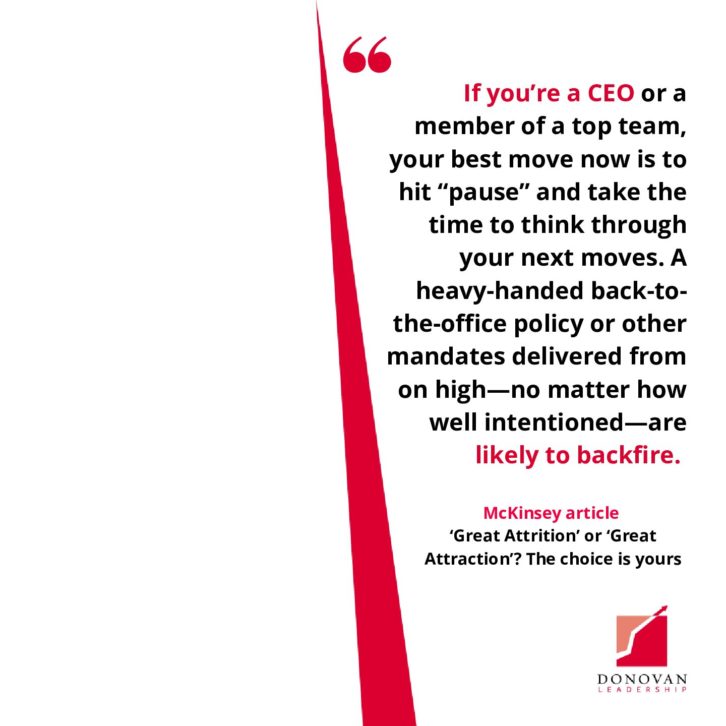Forty percent of employees in a McKinsey survey say they are at least somewhat likely to quit in the next three to six months. Eighteen percent of the respondents said their intentions range from likely to almost certain.
McKinsey outlined these findings in the article, ‘Great Attrition’ or ‘Great Attraction’? The choice is yours.
The findings held across all five countries they surveyed (Australia, Canada, Singapore, the United Kingdom, and the United States) and were broadly consistent across industries.
According to the study, the trend of higher turnover will persist. Fifty-three percent of employers in the study said they are experiencing greater voluntary turnover than they had in previous years. Sixty-four percent expect the problem to continue—or worsen—over the next six months.
Attraction and retention of key talent is set to be a challenge for leaders in all sectors. But do we understand why employees are leaving?
In the McKinsey study, when employers were asked why their people had quit, they cited compensation, work–life balance, and poor physical and emotional health. While these issues mattered to employees, the top three reasons employees cited for quitting were that they didn’t feel valued by their organisations (54 percent) or their managers (52 percent) or because they didn’t feel a sense of belonging at work (51 percent).
Key Questions
The McKinsey research suggests leaders are not listening to their people enough. They suggest pausing to ask some key questions to include employees in helping shape the plan and solutions:
🔹 Do we shelter toxic leaders?
🔹 Do we have the right people in the right places (especially managers)?
🔹 How strong was our culture before the pandemic?
🔹 Is our work environment transactional?
🔹 Are our benefits aligned with employee priorities?
🔹 Employees want career paths and development opportunities. Can we provide it?
🔹 How are we building a sense of community?
🙋 What are your suggestions to help retain talented people? 🙋♀️
Best regards, Brian

